How Literature Builds Empathy and Emotional Intelligence in Students
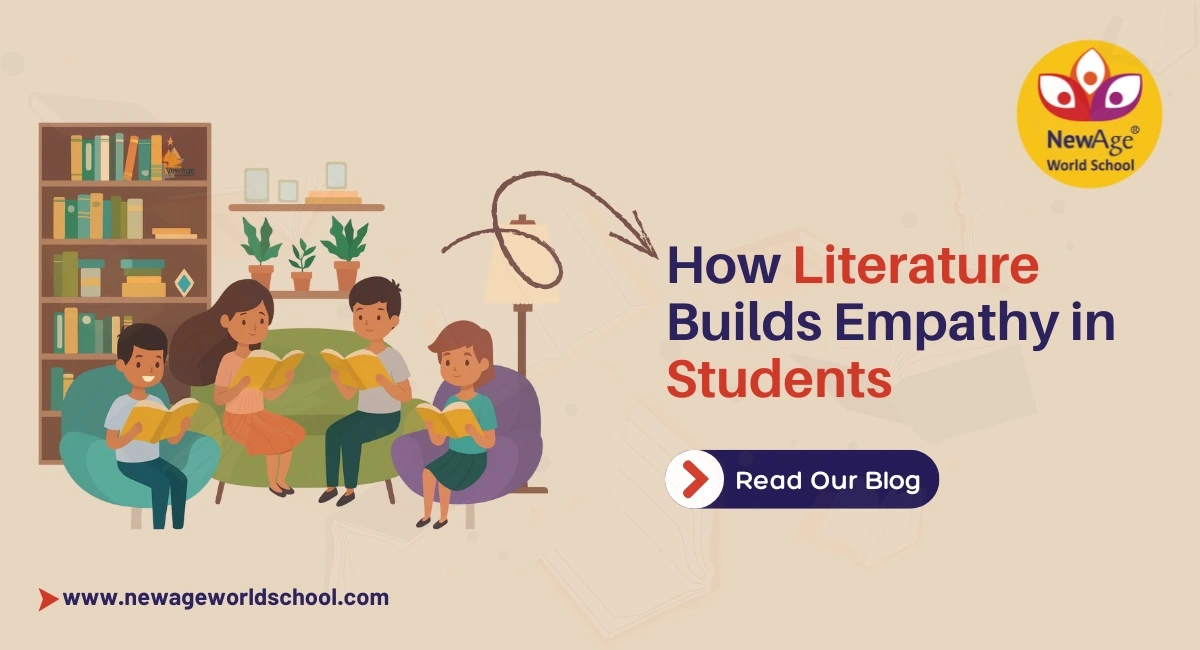
Table of content
• Introduction
• Literature as a Vehicle for Empathy
• Building Emotional Intelligence Through Stories
• Classroom Strategies at NewAge World School
• Benefits for Students & School Culture
• Choosing the Right Literature
• Overcoming Challenges & Pitfalls
• Measuring Impact & Feedback
• Join the Reading Movement at NewAge World School
• Conclusion
• Faqs
Introduction
Most parents and teachers agree that kindness and understanding matter as much as marks. But how do we actually teach those values? Books hold the answer. When children read, they explore emotions and experiences beyond their own world. This article will show how literature helps students grow emotionally, understand others better, and build stronger character through simple yet powerful reading in classrooms.
This article explores how literature in schools nurtures empathy, emotional intelligence, and emotional growth in students through interactive school reading activities. It explains practical classroom methods used at NewAge World School and how reading supports holistic child development, communication skills, and strong moral understanding.
1. Literature as a Vehicle for Empathy
Stories are magic mirrors that show life from another person’s point of view. Children learn what it feels like to be in someone else’s shoes when reading about heroes, friends, or flawed characters. That’s where empathy in students begins.
For example, a story about a poor farmer’s struggle or a young girl standing up for what’s right can touch a child’s heart more deeply than any lecture. Through literature in schools, children understand that everyone has joys and struggles — and kindness can make a real difference.
At NewAge World School, teachers use stories to entertain and start meaningful conversations. They encourage students to share their feelings while reading a chapter and reflect on how they might have acted in the character’s place. This builds empathy through stories in a natural and lasting way.
2. Building Emotional Intelligence Through Stories
Every book carries lessons that go beyond language or grammar. They teaches children how to name their feelings, manage them, and respond to others’ emotions — that’s emotional intelligence in its truest form.
A story about friendship may teach children how to handle jealousy. A mystery might teach patience and observation. Even a simple folktale may highlight courage or forgiveness. Reading regularly helps students express their feelings better and understand others without judgment. At NewAge World School, stories are carefully chosen to reflect life lessons. Teachers openly discuss emotions— anger, guilt, fear, or pride — helping students realize that all emotions are natural, but how we handle them defines us.
When children connect emotionally with a character, they also learn to reflect on their own behavior. That reflection is the foundation of emotional growth in students.
3. Classroom Strategies at NewAge World School
The classrooms at NewAge World School are alive with stories — read aloud, acted out, and discussed with joy. Here’s how teachers turn literature into a learning experience that builds values and emotional understanding:
Read Aloud Sessions
Teachers bring stories to life with tone, expression, and pauses. This makes children truly feel the story instead of just hearing it.
Reflection Journals
After reading, students jot down what they understood or felt. This improves both comprehension and emotional awareness.
Group Discussions & Role Plays
Students act out scenes or discuss how a character’s decision could have changed the ending. Such reading activities improve communication and teamwork.
Story Connections Across Subjects
At NewAge World School, literature connects beautifully with science, history, and even moral science. For example, a story about nature may open a discussion about protecting the environment. Through these creative activities, the school ensures that literature-based learning becomes an emotional journey, not just an academic task.
4. Benefits for Students & School Culture
When reading becomes part of daily life, the impact goes far beyond marks or language skills.
Better Emotional Balance
Children who read regularly learn to handle anger, fear, or sadness in a healthy way. They understand it’s okay to feel — and even more important to talk about it.
Improved Communication Skills
Reading enriches vocabulary and confidence. Students can express ideas clearly, which helps in friendships, debates, and future careers.
Inclusive School Environment
Literature helps students from different backgrounds come together. Whether it’s a folktale from India or a fable from another land, every story teaches respect for differences. At NewAge World School, this leads to a warm, respectful environment where kindness is part of the culture — not just a rule.
Life Skills Beyond the Classroom
Stories teach problem-solving, decision-making, and patience. These soft skills prepare students to handle real-life challenges with confidence.
The importance of reading for children is not limited to academics; it is about shaping who they become as human beings.
5. Choosing the Right Literature
Not all books suit every age. Teachers at NewAge World School carefully select stories that are age-appropriate, diverse, and full of meaning.
✔ Primary Students (Ages 6–9): Short moral stories, fables, and picture books.
✔ Middle School (Ages 10–13): Friendship tales, adventure novels, and real-life experiences.
✔ High School (Ages 14–17): Biographies, novels with complex emotions, and world literature.
Each level focuses on reading in classrooms that encourage thinking, questioning, and connecting emotions to daily life. This thoughtful selection keeps the spark of curiosity alive while shaping character and values.
6. Overcoming Challenges & Pitfalls
Teaching through literature isn’t always easy. Some children initially find reading boring, while others struggle with complex themes. Teachers at NewAge World School approach these challenges with creativity and care.
✔ They begin with relatable stories — such as modern tales about friendship or technology — to grab attention.
✔ They guide sensitive discussions around difficult topics such as loss or discrimination.
✔ They involve parents, suggesting simple home reading habits to continue the journey outside school.
The result? Students slowly move from reading for fun to reading for life, an essential part of emotional growth in students.
7. Measuring Impact & Feedback
How do we know if literature makes students more empathetic or emotionally aware? The answer lies in observation and feedback. Teachers notice positive behavioral changes — students becoming more patient, helpful, or open-minded. Reflection journals reveal how children interpret emotions or relationships differently over time.
Parents also share that children start showing more sensitivity at home — saying “thank you,” helping a sibling, or simply being more considerate. At NewAge World School, these changes are the real report cards that showing progress in developing empathy through stories.
8. Join the Reading Movement at NewAge World School
Every big change begins with a small step — and here, it starts with a book. NewAge World School encourages parents to nurture reading habits early. Create a small reading corner at home, talk about what your child reads, and let books be part of daily life. Every page they turn adds wisdom, compassion, and understanding to their growing heart.
📚 Admissions Open for the Academic Year 2025–26
Visit: https://newageworldschool.com/
9. Conclusion
Students who read become thinkers, listeners, and leaders. Through literature-based learning, they learn that intelligence is good — but being kind is even better. At NewAge World School, literature continues to shape readers into compassionate human beings who carry empathy, strength, and understanding wherever they go.
Frequently Asked Questions
Q1. How can parents encourage literature-based learning at home?
Set aside reading time, discuss stories with your child, and join the reading programs at NewAge World School.
Q2. Why is empathy for students essential today?
Empathy helps children form healthier relationships, handle conflicts peacefully, and contribute positively to society.
Q3. Can literature help students become better communicators?
Reading improves language skills and helps children express their thoughts and emotions clearly.
Q4. What kind of books are best for children’s emotional growth?
Age-appropriate stories that teach values like honesty, courage, and empathy — chosen carefully for each age group.
Q5. How does NewAge World School promote empathy through reading?
Teachers use stories, discussions, and dramatizations in school reading activities that inspire compassion and kindness.
Q6. What are the benefits of literature-based learning?
It improves vocabulary, emotional control, and critical thinking, and encourages emotional growth in students.
Q7. How does reading develop emotional intelligence in students?
Books teach self-awareness, empathy, and communication — all core aspects of emotional intelligence.
Q8. Why is literature important in schools?
It helps students explore emotions, cultures, and perspectives, building empathy and social understanding through school literature.

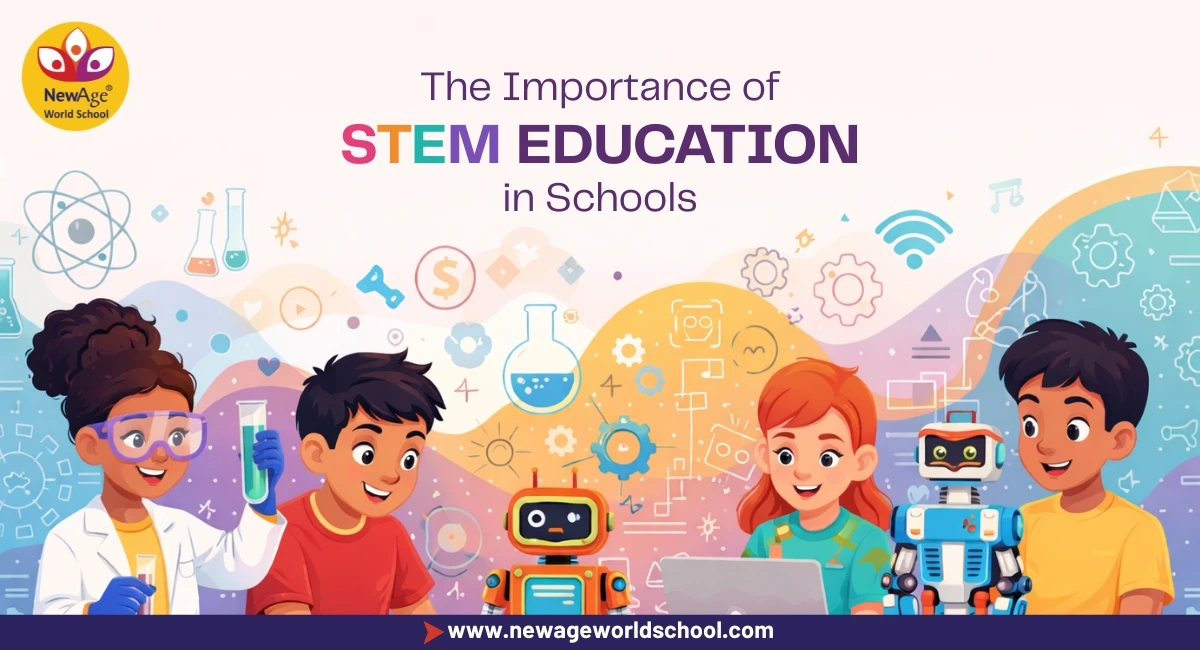
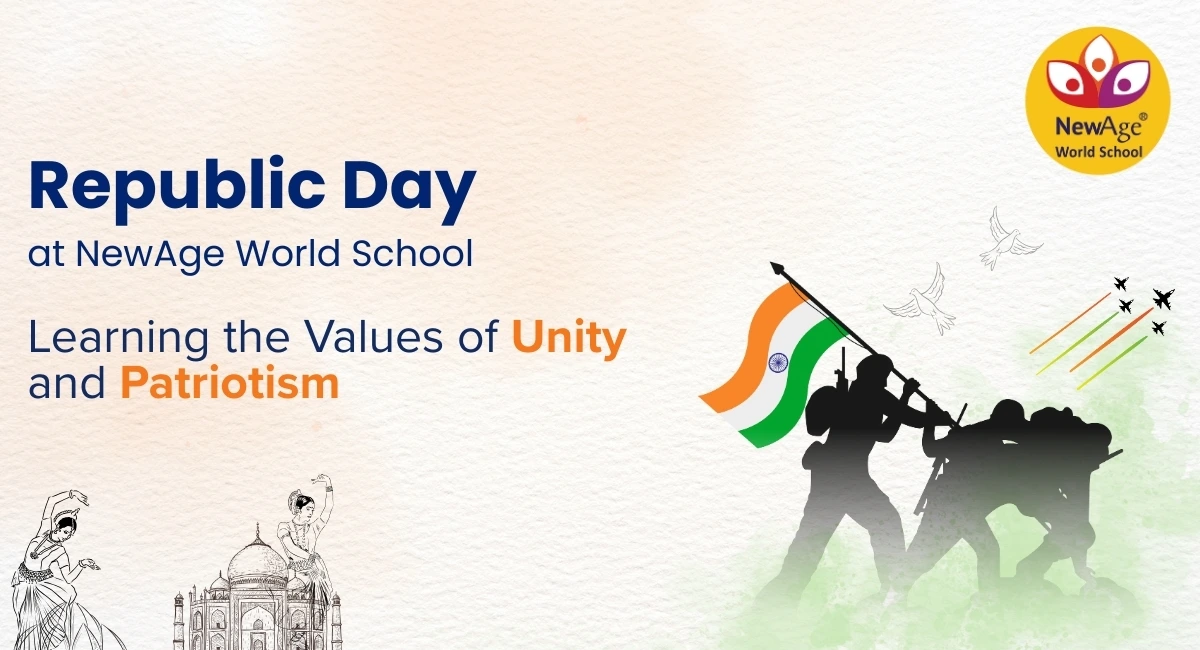
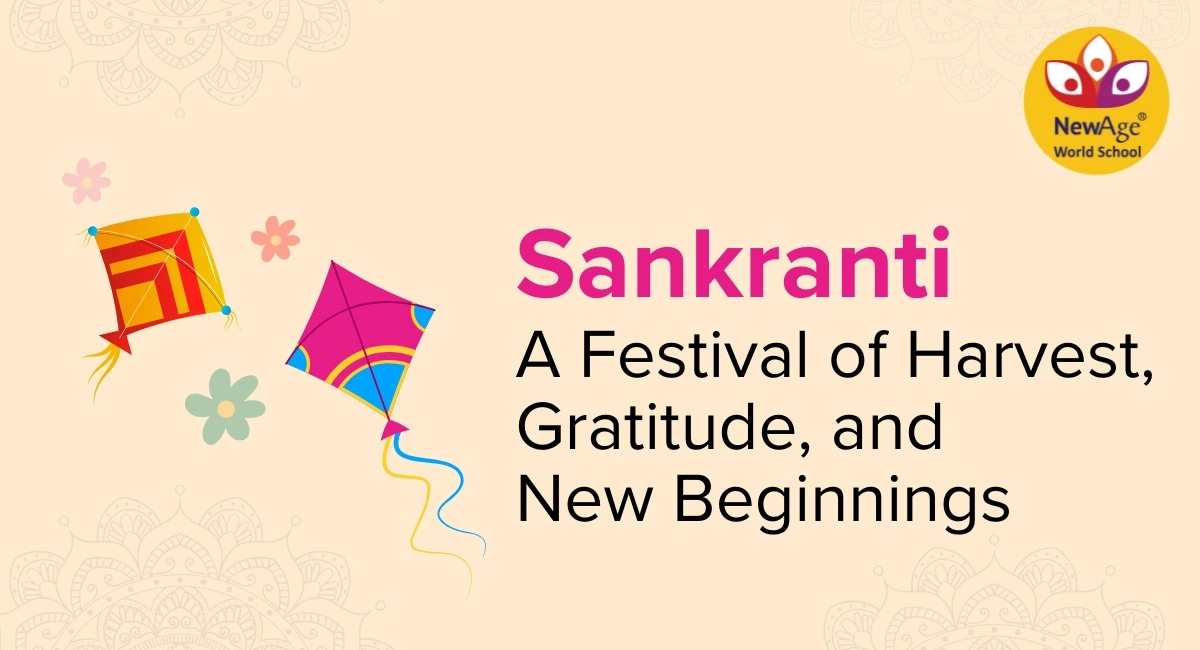





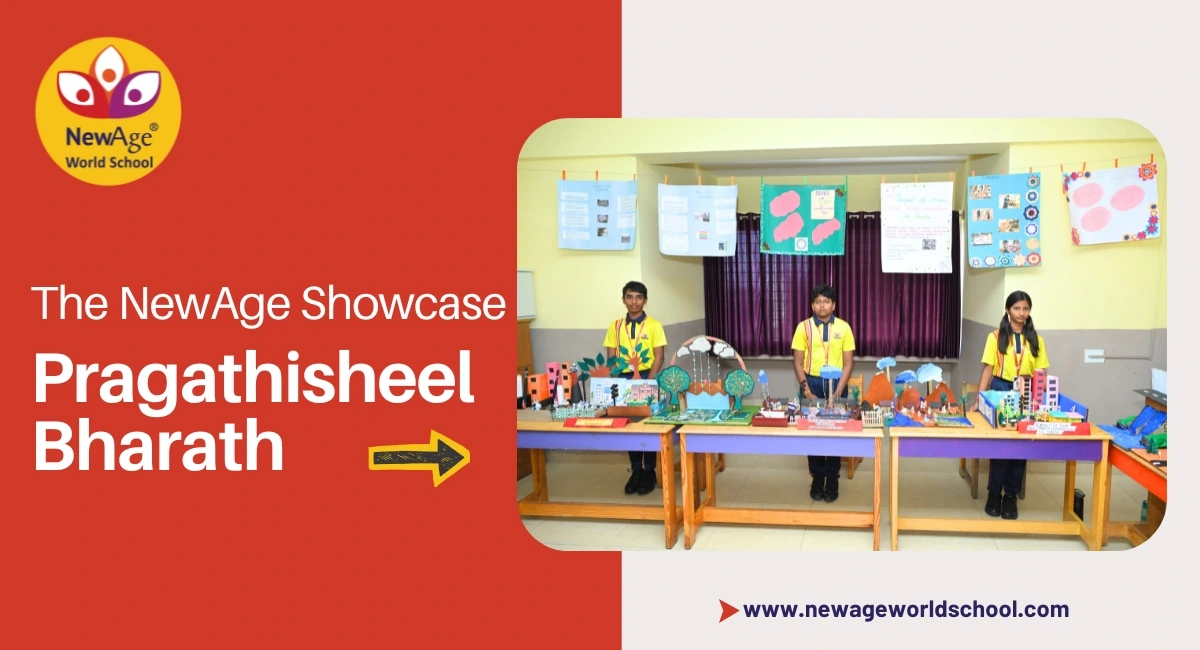
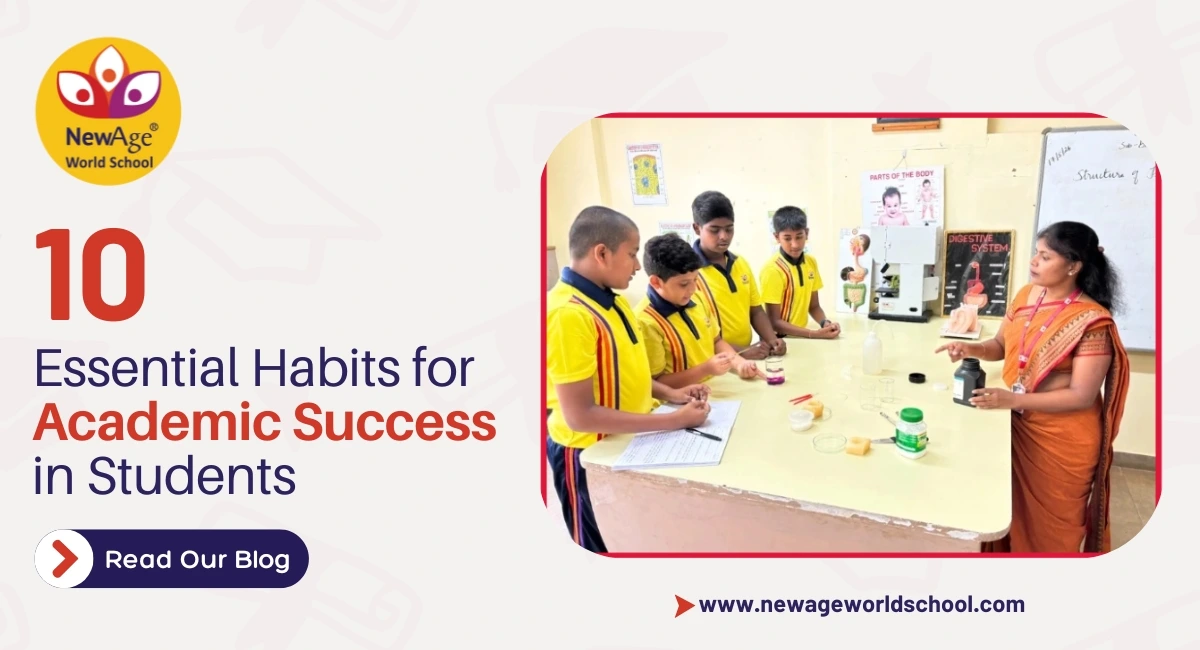

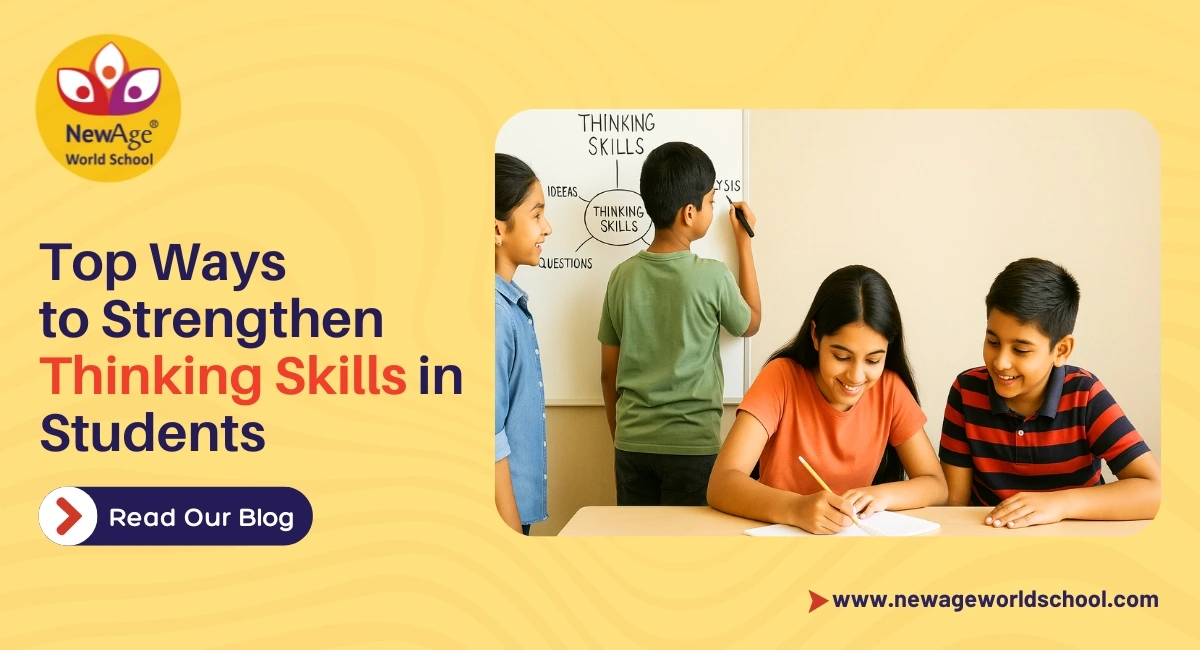



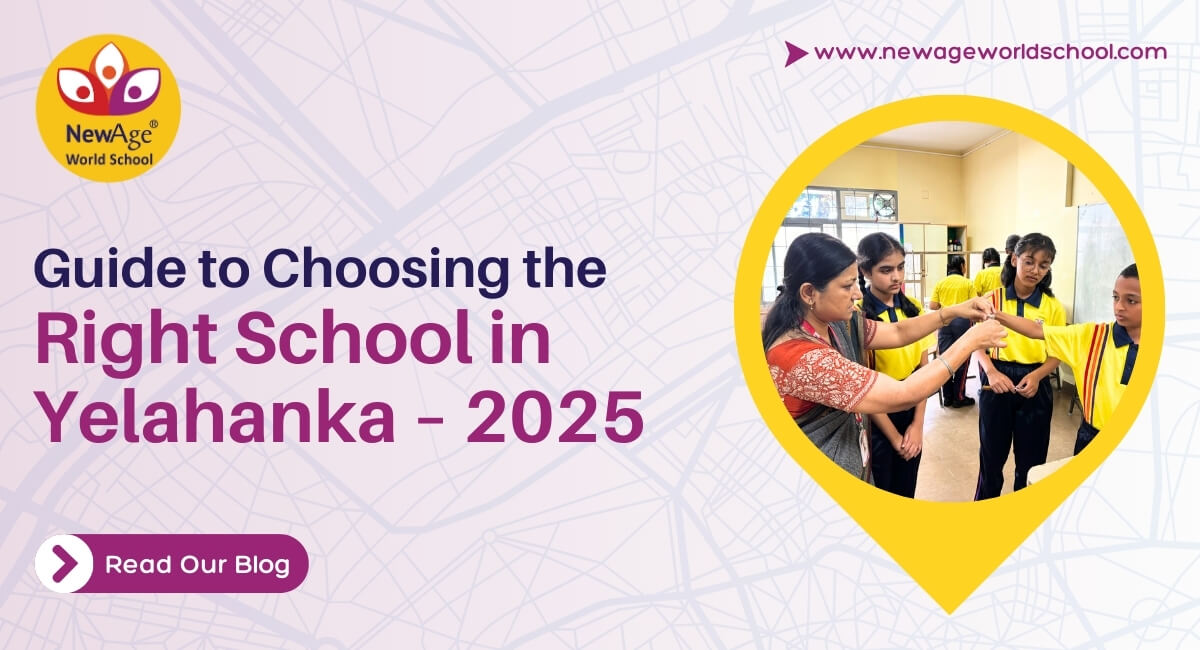
Leave a Reply
Your email address will not be published. Required fields are marked *
Comments
No comments available